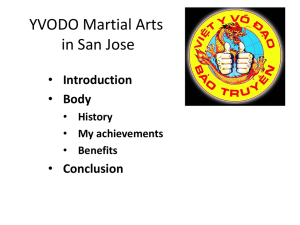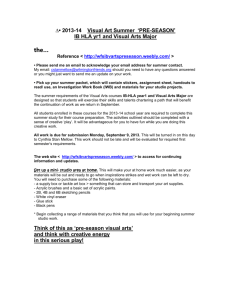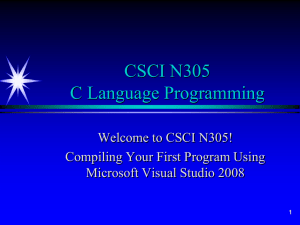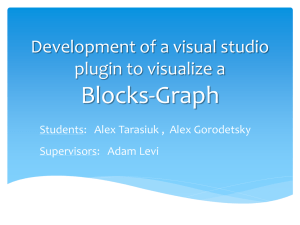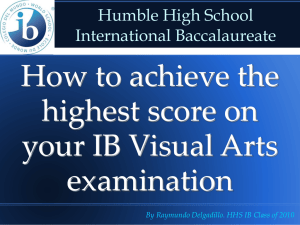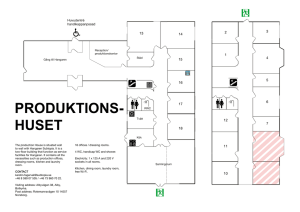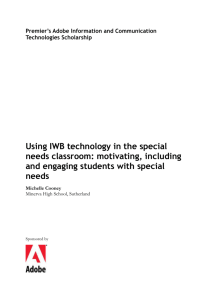Understanding - IB visual arts
advertisement
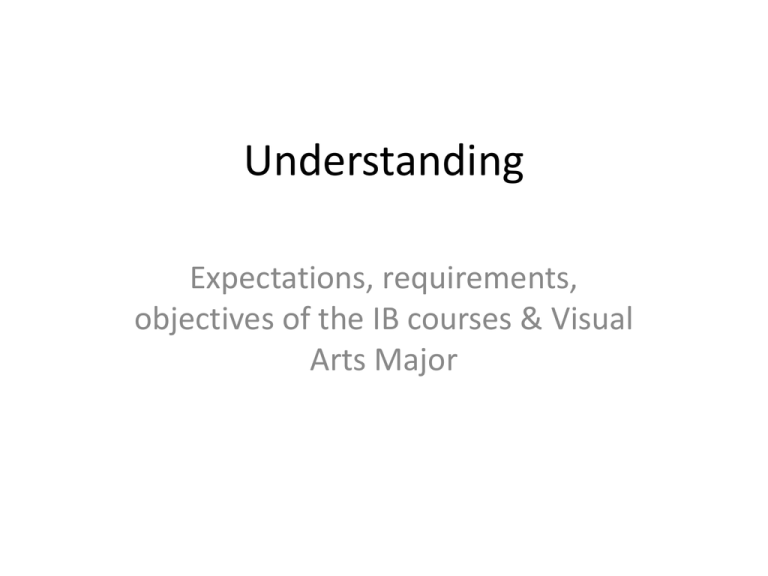
Understanding Expectations, requirements, objectives of the IB courses & Visual Arts Major • What are the criteria/ descriptors/ elements/ parts required for the IB HLA curriculum? or VAM course? The documents that have been made accessible on the course web site contain all of this information. http://wfsibvisualarts.weebly.com/documents.html There was a document that you signed in the beginning of the year as a contract that you read this and shared the information with a parent / guardian. Please review this again. This is very important information about the curriculum. • What is the form of the IB HLA exam? OR What is the form of exam for the VAM? • What does this include? How many studio pieces? IB HLA : Visual Arts Major : follows the SLA • Studio work – 60% mark • HLA : 12-18 studio pieces, information stated for each includes: title, media(s), dimensions in cm., date created. Visual Arts Major: all studio work from the year approx. 8-12 studio pieces, information stated for each includes: title, media(s), dimensions in cm., date created. • High quality image photograph that is 72 ppi, NO blurry images please! dimensions are letter size 8.5” x 11” • Editing work to create each document is to be done in Photoshop. • Only image adjustments i.e. exposure, editing for the above is allowed. • Studio pieces will only be assessed through a computer image uploaded. The examiners will not see the original work. • Function of the ePortfolio is to prepare and organize your work in this format for the IB exam. • Exam certified signed by the teacher and the student that all work are those of the student’s. Descriptors for Studio Student demonstrates in their personal relevant studio work: Understanding Relevance Development Sensitivity to materials Technical Confidence Independence How many IWB pages? HLA exam : Visual Arts Major (follows the SLA) 40% IWB (Investigative Workbook) HLA : 25 -30 pages supporting the studio work with investigative criteria as presented on the descriptor rubric. Visual Arts Major: 15- 20 pages supporting the studio work with investigative criteria as presented on the descriptor rubric. Pages dated and numbered. It must be READABLE. Examiner needs to be able to read ALL of these pages with clarity. Creative process documented. Especially important for digital media and photographs or any work in Photoshop. Sources of investigation must be acknowledged appropriately. This is available and has been referred to on the course site: http://wfsibvisualarts.weebly.com/documents.html These are to be high quality image photographs or scanned. 100 - 200 ppi. Higher quality ppi is needed for the readability of these pages. Letter size 8.5” x 11” single page. DO NOT scan or photograph TWO PAGES in one image. Must be single page document. These pages will be formatted to 72 ppi and A PFD will be created of all of your 25-30 pages. This is the document that will be uploaded to the IB OCC exam site. Descriptors for IWB Student demonstrates an understanding of: culture / context technique, media / process Investigation depth / breadth vocabulary sources presentation integration Other required parts of the IB exam: • Candidate Statement ( student artist statement ) 280-300 words maximum. Word count stated. • Exhibit of all work that is submitted for the Studio part of the exam. HLA: 12- 18 pieces. Can exhibit more but the exam work must be included in this exhibit. Photographs taken to document this exhibit ( display). Quality photographs. • Candidate interview/ presentation discussing all of the work (studio and IWB) submitted for the exam. This is a recording, video with technical specifications for format followed established by the IB OCC. Movie file .mov will be used. Created in iMovie. Interview statements recorded in teacher’s presence. Details and instructions will be presented to students as to the technical expectations. • What are the criteria/ elements required for the ePortfolio site? (Studio and IWB work) Why are these important? ePortfolio is an important requirement. This organizes the student artist to the technical needs as well as the formal presentation of their work. The students work will only be assessed through electronic means via the computer screen in digital format. The original art pieces will not be seen by the IB examiners. Banner/Header: includes logo WFS Course name,IB or VAM artist name Navigation Bar: very important! Identify pages, parts to contain content of your ePortfolio site. ORGANIZATION. Introduction = candidate statement Include word count. 280-300 maximum Year 1,Year 2 Studio images= ALL use comment function for the info associated with the image. Small in layoutwith click to enlarge the image. Quality images! No gallery / slide show pages for this studio layout or for the IWB pages. This would be an extra page designated as a ‘Gallery’ page. • What are the criteria/ elements required for the ePortfolio site? (Studio and IWB work) Why are these important? IWB pages published. Comment info includes page#, date, project investigation associated with. High quality. Small layout to click to larger image. Larger image should be a large image to open and be read. Organization can be with the studio work or separate. NEEDS to be there and info presented. Extras: other work, own links, other content re: each project. Cite your own IWB for this. Involvement in layout and content. You are the artist / designer. • How do you archive/ prepare a photographed image for your ePortfolio of your studio work? • What is the size and resolution of the IWB page images scanned or quality photograph for the ePortfolio and IB exam? Refer to the studio info previously outlined. Refer to IWB info previously outlined. PLEASE IF YOU HAVE ANY DIFFICULTY OR QUESTIONS ASK csm ∆• • What are the differences between the IB assessments and the WFS visual arts assessments? The WFS grade has no direct parallel to the IB mark bands. On Assessment page of the course site and on the front white board on the IB VAM studio side. IB marks are based on 1-7 WFS marks are based on 100% The WFS mark integrates the IB curriculum requirements into the assessment. • What is a ‘critique’? • What are the expectations / function of a ‘critique’? • What is meant by visual analysis? Please refer to the course web site for links to information for understanding. For the next IWB content to demonstrate thought and reflection on this investigation from these links. • What are the criteria for identifying and connecting your influences to studio work? • What is meant by making use of your studio time? • How does an artist create criteria/ plans to project outlined for a studio piece? Intent of the message, subject matter, function, thematic ideas. Concepts are identified. Trigger mechanisms. Vocabulary using elements of design and principles. Documents on the website that can used to refer to terms, etc. Techniques, media Scale, presentation. Investigation formed through questions. Answer your questions Source all work. Continuous creative process. !!! Create !!!! Investigation mostly accomplished outside of class. In class for studio creation work. PLEASE IF YOU HAVE ANY DIFFICULTY OR QUESTIONS ASK csm ∆• Most importantly… Find your artistic signature in something that interests you and enjoy the creative process and investigation!
